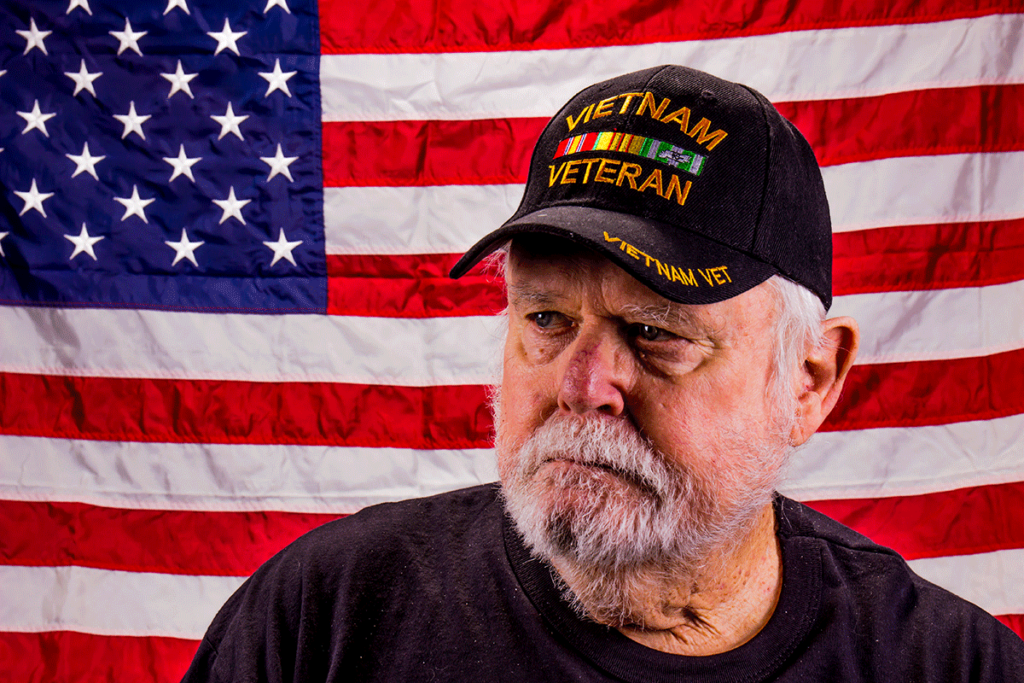Veterans have a greater addiction risk than the general population. This is due to several factors, including exposure to traumatic events, combat-related stress, and access to addictive substances. Veterans may also be more likely to self-medicate to cope with these stresses.
The connection between veterans and addiction risk is not entirely understood, but several unique factors show substantial evidence for this group of people. For veterans, addiction resources can be challenging to access because several barriers exist around their options for healthcare.
What’s the Link Between Veterans and Addiction Risk?
Members and veterans of the United States Armed Forces experience a particular set of challenges and responsibilities not usually encountered by the rest of the civilian population.
- Regular deployment – Moving from place to place
- Extended separation from family – Frequently for months at a time
- Unique culture – Drinking is often seen as a way to bond
- Combat service – Needing to constantly be on alert
- Life or death situations – Split-second decisions that impact the rest of their life
- Injuries and pain – Wounds and scars in battle; service-related disability
- Survivor’s guilt – Trauma from witnessing fellow soldiers’ injuries and deaths
- Alienation – Experiences that non-veterans may not understand
Higher Risk of Disability
Unfortunately, servicemembers and veterans are at a higher risk of chronic disability than other groups of people.
Servicemembers and veterans are considered significantly disabled if they have any of the following conditions:
- Post-traumatic stress disorder (PTSD)
- Traumatic brain injury (TBI)
- Severe vision loss or blindness
- Severe hearing loss or deafness
- Limited life expectancy due to a fatal disease
- Loss of a limb
- Spinal cord injury
- Paralysis
- Severe burns
- Permanent disfigurement
But these same conditions make it much more likely for the person to struggle with a substance use disorder (SUD).
Active Duty Servicemember Addiction Statistics
Generally speaking, the use of illegal drugs among active duty servicemembers is lower than in the civilian sector. However heavy alcohol abuse—particularly binge drinking—is far more prevalent.
- In 2008, 47% of active-duty military self-reported episodes of binge drinking.
- Approximately 20% of servicemembers surveyed in 2008 binge-drank every week during the previous 30 days. 27% of combat veterans engaged in weekly binge drinking.
- Among soldiers 18-35, the rate of binge drinking was 50% higher than it was among civilians in 2008.
- In 2011, 1 in 4 soldiers serving overseas self-reported a drinking problem.
Veterans, Pain, and Opioid Painkiller Abuse
Opioid painkillers are the most frequently-abused prescription medications by active-duty servicemembers and veterans. Part of this is that the military lifestyle lends itself to injuries and chronic pain complaints. But the over-prescription of opioid pain meds is also a very real concern. Too often, rather than ordering a lengthy non-opioid treatment regimen, military doctors will turn to painkillers as a first option. This is especially true for active-duty patients because lengthy treatments affect units’ combat readiness.
But veterans are also at risk. Between 2004 and 2012, the number of VA patients receiving opioid painkillers jumped nearly 77%. In 2014, the Department of Veterans Affairs treated approximately 650,000 veterans with opioids.
Barriers to Veterans’ Substance Abuse Treatment
Many veterans have difficulty accessing the care they need for substance abuse treatment. Compared to most civilians, veterans have higher rates of family instability, financial problems, lack of higher education, joblessness, and lingering physical and mental health problems.
Receiving adequate care from the VA for those health issues can also be problematic because:
- To receive VA benefits, the veteran must have either an honorable or general discharge. In other words, dishonorable, bad conduct, or other than honorable discharge disqualifies them from receiving VA health benefits.
- The waiting list for drug or alcohol abuse treatment can be lengthy due to a shortage of providers. As recently as late 2014, the VA was trying to fill 400 vacant primary care physician positions.
- The nation’s estimated 22 million veterans are served by just 151 medical centers, 300 veterans centers, and 820 outpatient clinics.
What Can Help the Problem of Addiction Among Veterans?
By far, the biggest thing that can be done to help U.S. veterans struggling with substance use disorders is expanding the availability of necessary services. To completely address these unique issues facing veterans, drug and alcohol rehab treatment must be comprehensive and may include any or all of the following:
- Individual psychotherapy
- Cognitive-behavioral therapy (CBT)
- Trauma counseling
- Group therapy
- Family counseling
- Medication-assisted therapy (MAT)
- 12-step support groups
If access to care at a VA medical center is limited, other addiction treatment centers can provide high-quality care in veteran-specific programs.
Treating the Link Between Veterans and Addiction Risk at Northpoint Recovery
Northpoint Recovery is proud to offer a veteran-specific program that includes all of the necessary components of care, from detox to aftercare. Our staff members include veterans who understand the unique challenges you’re facing. You are not alone—we can help you get your life back on track.
Call 888.296.8976 or contact us online today for more information about how to get started.

